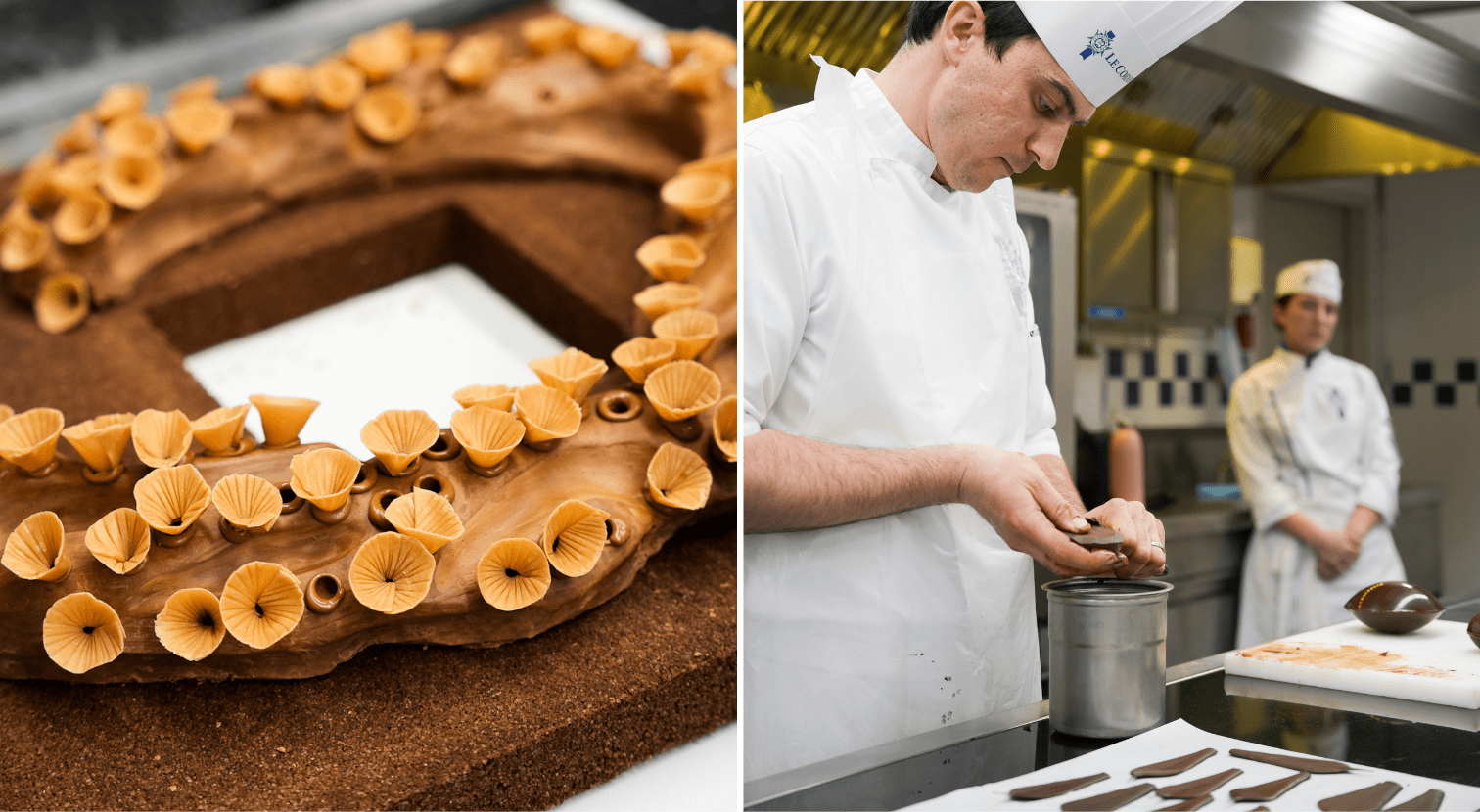
How to Become a Chocolatier? Training, Career and Opportunities
Chocolate appeals to everyone: children, fine gourmets, and lovers of both cuisine and pastry. However, for those who dream of turning it into a profession, the path requires discipline, creativity, and mastery of specific techniques. Becoming a chocolatier means entering the demanding world of cocoa craftsmanship, where every movement counts. Whether you are a pastry chef seeking specialisation, a confectioner wishing to expand your expertise, or an adult undergoing a career change, various training pathways provide access to this increasingly sought-after craft profession. This guide offers all the essential insights to understand the careers linked to chocolate, the skills to acquire, and the professional opportunities available.
What Does the Job of an Artisan Chocolatier Involve?
A chocolatier is an artisan with meticulous expertise. Their daily work revolves around creating chocolates, bars, ganache, and even sculpted chocolate pieces. They handle chocolate – a living material – by heating, tempering, moulding, flavouring, and refining it. Each recipe is a quest for balance between tradition and innovation.
Their role extends beyond the workshop: they may also manage a boutique, advise clients, and organise sales around major seasonal events such as Christmas or Easter. This profession is simultaneously manual, creative, and entrepreneurial, with the rhythm of production guided by the seasons – and where taste leaves no room for approximation.
Retraining as a Chocolatier
Choosing to become a chocolatier represents both a personal and professional commitment. Whether you are searching for more meaning, weary of an uninspiring job, or drawn to the world of craftsmanship, retraining in chocolate-making is achievable.
Adult training centres such as GRETA or specialised schools offer intensive programmes. The Personal Training Account (CPF), Pôle Emploi, or regional funding can often cover part of the cost. Before taking the plunge, it is highly recommended to complete an introductory course to confirm your interest, and to discover whether you are ready to swap your keyboard for a spatula.
What Are the Essential Qualities for Working with Chocolate?
This is not a profession to improvise. It requires a love for precision, an eye for beauty, and the ability to handle textures with patience. Working with chocolate demands accuracy, physical endurance, and curiosity, as culinary trends evolve rapidly.
A skilled chocolatier is part artist, part technician, but above all, a passionate individual who does not count their hours when immersed in a creation.

